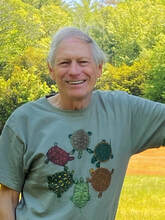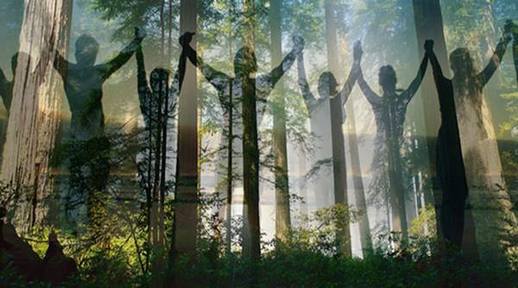Christine's Tribute to White Pond
"In Wildness is the Preservation of the World"
Henry David Thoreau
When I first moved to Concord many years ago, I was a young mother with a toddler. Over the years our family grew to include five children and now five grandchildren. My family has benefited from living in a well-managed town with so many vital resources including a rich history, a vibrant town government, committed residents, great schools and plenty of opportunities for recreation.
White Pond has always been a vital part of our lives as a place of connection to the land and quiet place of solace. The pond is where we gather to spend time with friends and neighbors. No matter what kind of mood we are in, after just a few minutes at the pond, we let go of our lists of things to do and just enjoy the present moment.
When my children were young, we spent every summer afternoon at the pond swimming and socializing with other families. In the fall, we tramped through freshly fallen leaves as we followed each other on trails that led us to new places. During the winter months, we skated to the other side of the pond, marveling at the new perspective we had of our summer swimming spot at the White Pond Associates beach. Every Spring, we looked forward to discovering new green life growing in the woods. White Pond taught me and my children about the web of life and the cycle of death and rebirth, about our intimate connection to animals, birds, plants, trees and the earth itself. All year long, White Pond gives us a place to be free and out in nature. Even today, when my children and grandchildren visit, one of the first things we do is take a walk to the pond.
I feel lucky to live in Thoreau Country. When Thoreau writes about wildness in his essay, Walking, he is talking, in part, about White Pond and the woods around it. He and I walk the same trails, taking in the view at every turn. White Pond was his wildness and where he came to get away from the “bustle” of Concord Center. White Pond is also where he and Ralph Waldo Emerson walked and talked about their philosophy of Transcendentalism, a deep connection of people to nature.
Everyone needs a little wildness in their lives-- a place to feel relaxed and listen to that small still voice inside. White Pond is a place for me and my family to disconnect from the virtual world of laptops, Facebook, Twitter and cell phones and reconnect with the real world and remember what life is all about.
White Pond has taken care of me and my family and has never asked anything in return. She is always there looking beautiful no matter what time of day or year. She invites me to be with her and just breathe. I'd like to make sure that she is always available for everyone to enjoy and that means taking care of her by managing the land and the people who visit. For me, taking care of White Pond is symbolic of how we treat the earth. Mother Earth is not making any more wild places, so I want to take care of the little pockets of wildness that we have left. As I think globally and act locally, I am committed to protecting and preserving the land and the pond for people to enjoy in the present and in the future.
White Pond is also the place where I follow in the footsteps of the Native Americans, the first residents of this land. Squaw Sachem’s Cove on the western edge of the pond is named for the “Queen of the Mystic” one of the Native Americans who deeded the original Musketaquid land to Peter Bulkeley and Simon Willard. They renamed it Concord. As I walk in these woods, I think about the people who lived here before me and loved this land. I am reminded of an old Indian Blessing -- Let us walk softly on the Earth with all living beings great and small. White Pond needs all us to walk softly to preserve her beauty. Let us remember these words, as it is now up to our generation like others before us to take good care of White Pond.

